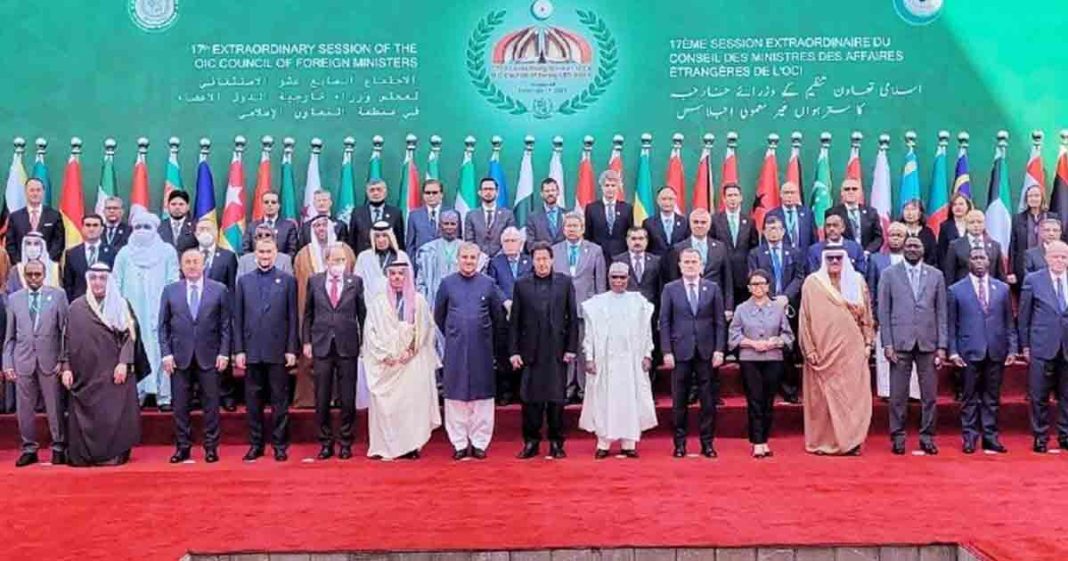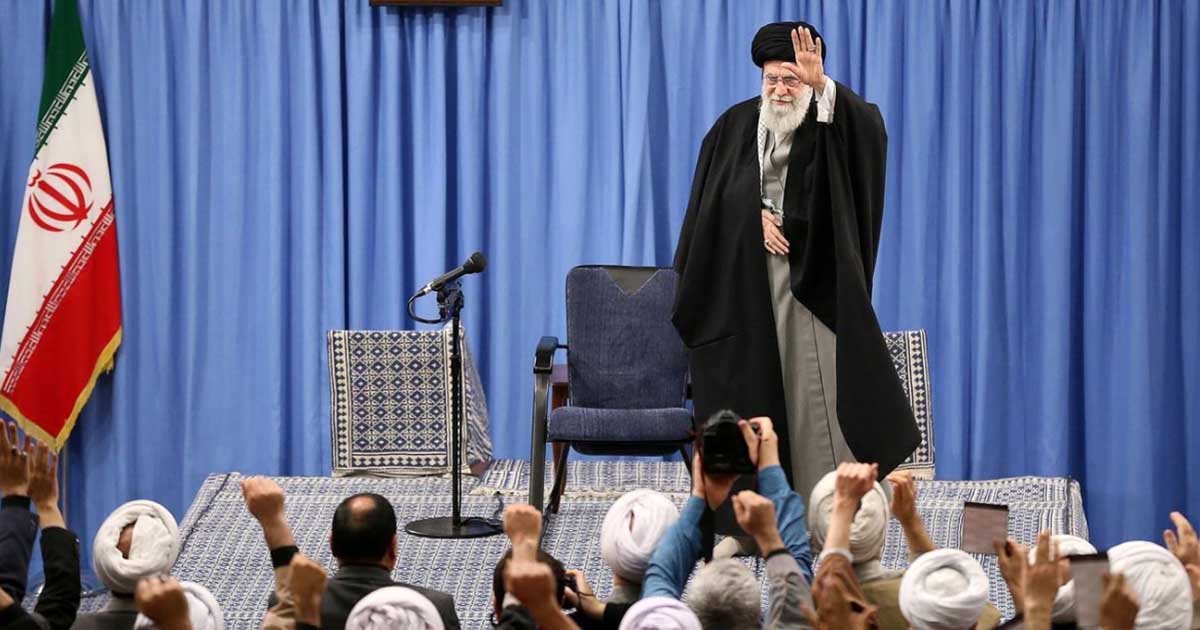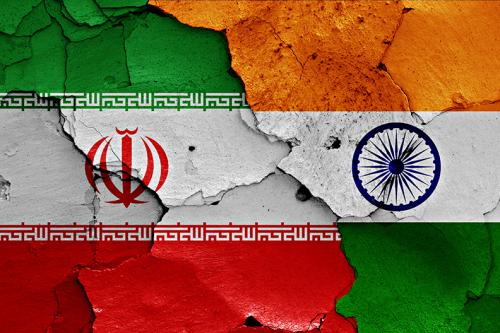Under the theme of “Partnering for Unity, Justice and Development”, the 48th Organization of Islamic Cooperation’s (OIC) Council of Foreign Ministers (CFM) summit was hosted by Pakistan on 22-23 March 2022 in Islamabad. It was the second time Pakistan got an opportunity to host an OIC ministerial meeting in Islamabad following the extraordinary meeting of Foreign Ministers held last December on the humanitarian situation in Afghanistan. The OIC is the second-largest intergovernmental organization with 57 members state after the United Nation Organization (UNO), it was formed in 1969 and its headquarter is in Jeddah. The main objective of OIC is to promote cooperation between Muslim states in the fields of culture, science, social cooperation, and the economy. Apart from this an essential part of its work is also the protection of the Islamic faith and the holy sites.
The representatives of 46 Islamic nations have participated in the OIC conference and Chinese Foreign Minister Wang Ji was the special guest of the summit which highlights China’s growing role in the Muslim world. The 48th OIC proved to be a landmark session in Muslim Ummah’s combined efforts to chart a joint Islamic way forward. Although all issues pertaining to Muslim Ummah remained under consideration, the main agenda of the summit revolved around discussion on Palestine situation, Indian Illegally Occupied Jammu and Kashmir (IIOJK) and Afghanistan. Besides this, issues related to Africa and Muslims in Europe and developments in Yemen, Libya, Sudan, Somalia and Syria were also taken up at the meeting. Islamophobia, international terrorism, and cooperation in economic, cultural, social, humanitarian, and scientific domains were the other subjects that were discussed.
Read more: OIC contact group takes stock of human rights violations in IIOJK
How OIC has failed?
It is sad to say that in the past the OIC has failed to respond significantly to any crisis faced by Muslim Ummah, whether it is Indian armed forces war crimes in IIOJK, brutalities of Israel in Palestine, viciousness against the Rohingyans a stateless Muslim minority in Myanmar, the invasion of Lebanon by Israel in 1982, the Iran-Iraq war, Soviet intervention in Afghanistan and the US occupation of Iraq, etc. Nothing was done meaningfully on the part of OIC to contain the crises or avert the tragedies.
While having an abundance of natural resources and massive potential to become the most powerful bloc of the global world order, the Muslim world is faced with multi-dimensional challenges emanating out of mistrust, injustice and development. Internally, the Muslim world is suffering under bad governance, corruption, malpractices, poverty, backwardness, ignorance, social injustices, unemployment, inequality, immoral values. Sectarianism and territorial rivalry is some other factors that have increased distrust within Muslim states.
Like, two powerful Muslim Arab states Iran and Saudi-Arabia have a belligerent policy against each other as well as some materialistic and self-governing minded leadership have soft corner towards India and western countries. Due to their biased policies, the collective support to any pertaining issue faced by the Muslim world is not addressed with united voices as it should be.
External challenges faced by the Muslim world include Islamophobia and anti-Islamist propaganda, Kashmir, Palestine, Afghanistan and mistreatment of Muslim minorities. Therefore, the EU reaction to Ukraine war is an eye-opener for the Muslim world in general and for their leadership in specific that has failed to collectively maintain peace in IIOJK, Palestine, Afghanistan and elsewhere in the Muslim world despite shared regional, historic, cultural and ethnic identities.
Read more: PM Khan asks OIC, China to mediate between Ukraine, Russia
What was the significance of this summit?
Therefore, the 48th OIC summit is unique in its way as it collectively addressed all the pressing issues faced not only to Muslim World but also around the globe. Pakistan’s Prime Minister during his address urged foreign ministers from Muslim-majority nations and China to mediate to end Russia’s war in Ukraine. He stressed that the Ukraine crisis could have the worst consequence to the world that is already facing the surge of oil prices, gas and wheat. To address the humanitarian crisis in Afghanistan, Pakistan announced the establishment of a humanitarian trust fund for Afghanistan, which will be operated by the Islamic Development Bank and funded through donations from OIC member states, Islamic financial institutions, donors and international partners.
The Organization of Islamic Cooperation Contact Group on Jammu and Kashmir was also held on the side-line of the 48th Session of the OIC-CFM and all states stressed the final settlement of the Jammu and Kashmir dispute in accordance with UN Security Council resolutions and an UN-supervised plebiscite was indispensable for durable peace and stability in South Asia.
To conclude, hosting of the 48th CFM is indeed a distinct privilege for Pakistan to reiterate its commitment towards harnessing ‘collective ambition’ into ‘concrete action’, and to take tangible steps to further strengthen bonds of Islamic solidarity and cooperation. Economic ties within OIC member states would erase/ minimize poverty, leading to human resource development in the Muslim world. One voice on all world issues confronting the Muslim world including invasion can be resolved or avoided through optimally utilizing the potentials as a whole. OIC collectively can play a constructive role in resolving the crisis between the West and Islam through an informed dialogue among different faiths.
The writer is an Islamabad-based analyst and can be reached at sarahamidkhan21dec@gmail.com. The views expressed in this article are the author’s own and do not necessarily reflect the editorial policy of Global Village Space.














